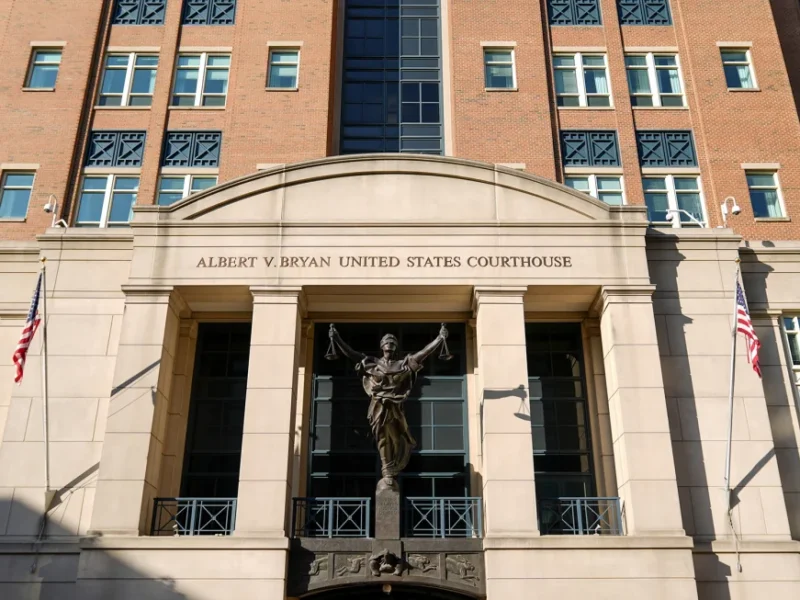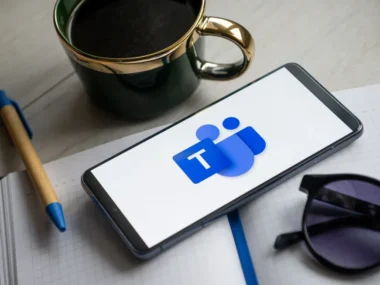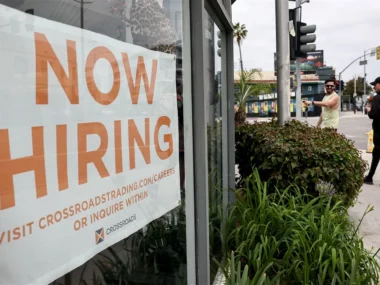The U.S. Department of Justice (DOJ) claims that Google has not only monopolized the search market but has also unfairly dominated online publishing and advertising through what it calls a “trifecta” of monopolies, affecting nearly every aspect of the web. This accusation was made in a federal court in Virginia, where a trial has begun that could significantly alter the economics of website operation.
This high-profile case involves the DOJ and 17 states aiming to prove that Google’s extensive advertising business, which is worth $31 billion and involves technologies that connect publishers with advertisers, has violated U.S. antitrust laws. The lawsuit argues that Google engaged in anti-competitive practices such as mergers, self-dealing, and manipulating ad auctions to strengthen its market position, leading to increased costs for both publishers and advertisers.
During the trial’s opening, Julia Tarver Wood, a senior attorney for the DOJ, stated that Google isn’t on trial simply for its size but because it allegedly leveraged its scale to stifle competition.
Google has responded strongly, arguing that the government’s case is outdated and doesn’t align with the current state of internet advertising. Karen Dunn, Google’s lead attorney, likened the government’s lawsuit to a “time capsule” filled with outdated technology references, dismissing it as irrelevant to today’s digital landscape.
This trial follows a recent federal ruling that labeled Google’s search engine as an illegal monopoly. Now, the DOJ is aiming for another win by focusing on Google’s advertising practices, which are alleged to have hindered competition across the broader web.

Attorney Karen Dunn, a member of Google’s defense team, was seen leaving the Albert V. Bryan United States Courthouse in Alexandria, Virginia, on September 9, 2024. The Justice Department is pursuing an antitrust case against Google, challenging the company’s practices in its ad-tech business for allegedly violating antitrust laws.
The U.S. Department of Justice (DOJ) argues that Google has monopolized the online advertising industry through a series of anticompetitive actions. These include acquiring rivals, coercing businesses into using its ad products, and maintaining control over critical components of the ad-tech stack. As a result, Google has increased costs for advertisers while reducing revenue for publishers.
During the trial’s first day, Tim Wolfe, a revenue executive at Gannett (the publisher of USA Today), testified that about two-thirds of the $15 million in fees Gannett pays annually to ad-tech companies go to Google. Wolfe emphasized that publishers have little choice but to use Google’s advertising tools due to the lack of viable alternatives, and switching away would be highly challenging.
The DOJ contends that Google used acquisitions, such as those of DoubleClick and AdMeld, to eliminate early threats to its advertising business and leveraged its control over various technologies to engage in self-dealing. The lawsuit also points out that even organizations like the U.S. Army have been affected, with the government spending $100 million on internet ads since 2019.
DOJ attorney Julia Tarver Wood described Google’s control over three major components—its publisher ad server business, its ad exchange (AdX), and its advertiser ad network—as a “trifecta of monopolies.” In these areas, Google holds at least half of the market and, in some cases, as much as 91%. Wood stated that the market is structured in such a way that “all roads lead back to Google.” The DOJ and 17 states have called for these parts of Google’s business to be broken up.
This case represents the second major DOJ antitrust challenge against Google since the Trump administration. While the DOJ accuses Google of using its dominance to stifle competition, Google argues that its tools are essential for small businesses and publishers and that the online advertising industry remains competitive.
Google’s defense, led by attorney Karen Dunn, claims that the DOJ has overstated its market share by ignoring other competitors, such as Amazon, Meta, Microsoft, and TikTok. According to Google, considering all competitors reduces its share of the ad exchange market from 34% to 17%. Google warns that breaking up its business would primarily benefit other Big Tech giants.
The trial is being presided over by Judge Leonie Brinkema, who is known for her preference for efficiency and has already limited the trial length. High-profile witnesses from companies like Comcast, Disney, The New York Times, and Meta, along with some senior Google executives, are expected to testify.
While the DOJ estimates that Google’s practices have cost publishers and advertisers hundreds of millions of dollars in extra fees since 2019, Google counters that advertising costs have been falling across the industry and that its market share in display advertising has been decreasing since 2013.
The trial aims to determine whether Google has violated antitrust laws, with the possibility of a breakup of its ad tech business, which could reshape the digital advertising landscape. While the DOJ argues that a breakup would promote competition, Google maintains it could harm smaller websites reliant on its tools or simply benefit other established giants.











